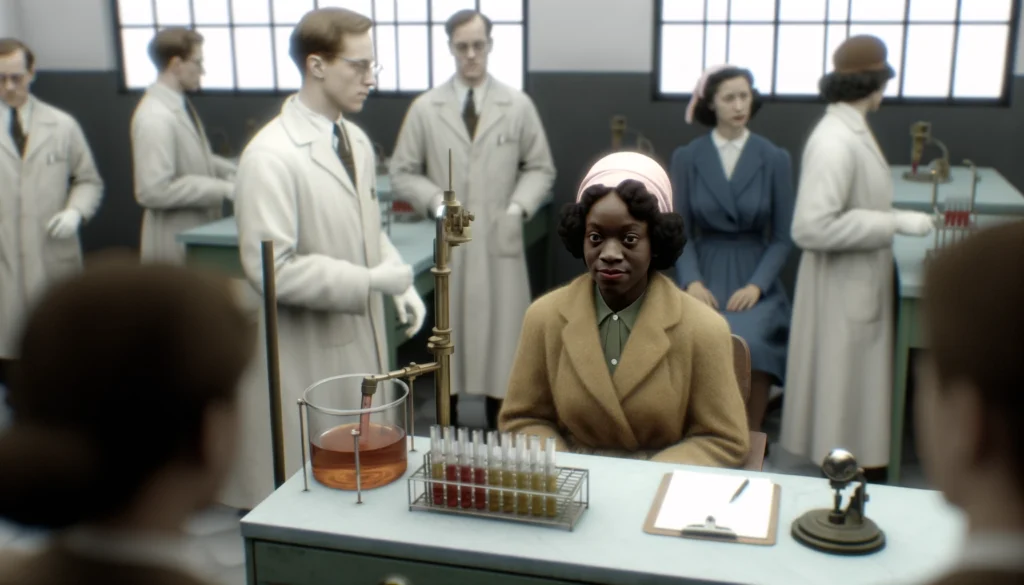
Judge Allows Lacks Family to Proceed with Lawsuit Over HeLa Cells
By Darius Spearman (africanelements)
Support African Elements at patreon.com/africanelements and hear recent news in a continuous playlist. Additionally, you can gain early access to ad-free video content.
In a historic ruling on Monday, U.S. District Judge Deborah Boardman denied a motion by Ultragenyx Pharmaceutical to dismiss a lawsuit. Specifically, the estate of Henrietta Lacks brought the suit over the company’s alleged unjust enrichment from using Lacks’ groundbreaking “HeLa” cells. (SOURCE: BET)
The Lacks family contends that Ultragenyx has wrongfully profited from using HeLa cells. Notably, doctors took these cells from Henrietta Lacks without her knowledge or consent during cancer treatment at Johns Hopkins Hospital in 1951. The company then used them to develop viral vectors for gene therapies without compensating her estate. (SOURCE: Bloomberg Law)
Origins of HeLa Cells
In 1951, cervical cancer cells were taken from Henrietta Lacks at Johns Hopkins Hospital without her knowledge or consent, which was common practice at the time. Cell biologist Dr. George Gey discovered these cells were uniquely immortal and could be kept alive and propagated indefinitely in cell culture. He named the cell line “HeLa” after the first two letters of Henrietta’s first and last names. (SOURCES: Wikipedia, Wikipedia, Johns Hopkins Medicine)
Groundbreaking Medical Advances
In the 1950s, mass-produced HeLa cells enabled the development and testing of the first polio vaccine by allowing scientists to confirm the vaccine’s effectiveness against the virus. HeLa cells were later instrumental in studying HPV, the viral cause of cervical cancer, leading to the development of HPV vaccines. (SOURCES: NIH, Wikipedia, NCBI, Technology Networks)
HeLa cells also allowed scientists to discover that normal human cells contain 46 chromosomes, not 48 as previously thought. This revelation paved the way for the study of chromosomal disorders. Furthermore, creating human-animal cell hybrids with HeLa cells led to mapping genes to specific chromosomes, setting the stage for the Human Genome Project. (SOURCES: NIH, Wikipedia, NCBI)
Over the decades, research using HeLa cells has contributed to the study of cancer, AIDS, effects of radiation and toxic substances, gene mapping, and development of treatments and vaccines, including recent COVID-19 vaccines. Major medical advances such as in vitro fertilization also utilized HeLa cells. (SOURCES: Wikipedia, NIH, Alameda Health System, NCBI)
Ethical Controversies
However, ethical controversies arose because Lacks’ cells were used without consent, and her family was not informed for over 20 years that her cells were still living and being used in research. The Lacks family has argued they deserve compensation for the nonconsensual use of Henrietta’s cells. (SOURCES: Wikipedia, Alameda Health System, NCBI, Medical News Today)
In 2013, researchers published the genome of a strain of HeLa cells without consent from the Lacks family, raising privacy concerns. An agreement was reached requiring NIH-funded researchers to get approval to use HeLa genome data. However, the family has no control over use by private companies. (SOURCES: NCBI, NCBI, Columbia University)
In 2021, the Lacks estate sued Thermo Fisher Scientific, claiming unjust enrichment from the nonconsensual use of HeLa cells. A settlement was reached in 2023. Experts say this case highlights the need for clearer consent policies and recognition of research participants. (SOURCES: The Journal of Legal Medicine, NCBI, PBS)
HeLa cells have enabled over 110,000 scientific publications and numerous Nobel Prize-winning discoveries that have transformed medicine. At the same time, Henrietta Lacks’ story exemplifies historic racial injustices and violations of consent and privacy in medical research that society is still grappling with today. Her legacy is one of both scientific triumph and bioethical tragedy.
Judge Rejects Ultragenyx’s Arguments for Dismissal
In her decision, Judge Boardman stated that the Lacks estate had “plausibly claimed that Ultragenyx wrongly profited from its research using the ‘immortal’ HeLa cell line.” Moreover, she did not find Ultragenyx’s arguments persuasive. The company argued it was too remote from the original taking of the cells to be liable. Additionally, it claimed Maryland’s three-year statute of limitations for unjust enrichment claims barred the lawsuit. (SOURCE: Bloomberg Law)
Lacks Family Attorneys Praise “Historic” Ruling
Attorneys representing the Lacks family, including civil rights lawyer Ben Crump and mass torts litigator Christopher Seeger, applauded Judge Boardman’s decision. “We applaud Judge Boardman’s historic ruling, which allows our unjust enrichment claims to proceed. Furthermore, it acknowledges the deep injustices that Henrietta Lacks and her family have endured,” they said in a joint statement. (SOURCE: Law.com)
The attorneys emphasized that the case is about more than just financial compensation. “This case is about restoring dignity to Henrietta Lacks, delivering long-overdue justice, and preventing such exploitation from happening again,” they said. Moreover, they indicated the family may pursue further legal action against other companies that have similarly profited from HeLa cells without consent or compensation. (SOURCE: BET)
Second Lawsuit Seeking Compensation for HeLa Cells
The Lacks family has brought this as the second lawsuit seeking compensation for the nonconsensual use of the HeLa cells. Previously, in August 2023, they reached a confidential settlement in a case against Thermo Fisher Scientific. (SOURCE: CBS News Baltimore)
Legal experts say these cases are putting pressure on the biotech industry. Specifically, they are pushing it to address the unethical history behind the HeLa cells. Additionally, the cases are driving reforms around patient consent and compensation when human tissues are used in medical research. (SOURCE: Reuters)
While still early in the litigation process, the ruling marks an important incremental victory for the Lacks family. They continue their quest for justice and recognition of Henrietta Lacks’ legacy. However, Ultragenyx can still challenge the claims as the case proceeds.
About the author
Darius Spearman has been a professor of Black Studies at San Diego City College since 2007. He has authored several books, including Between The Color Lines: A History of African Americans on the California Frontier Through 1890. You can visit Darius online at africanelements.org.
